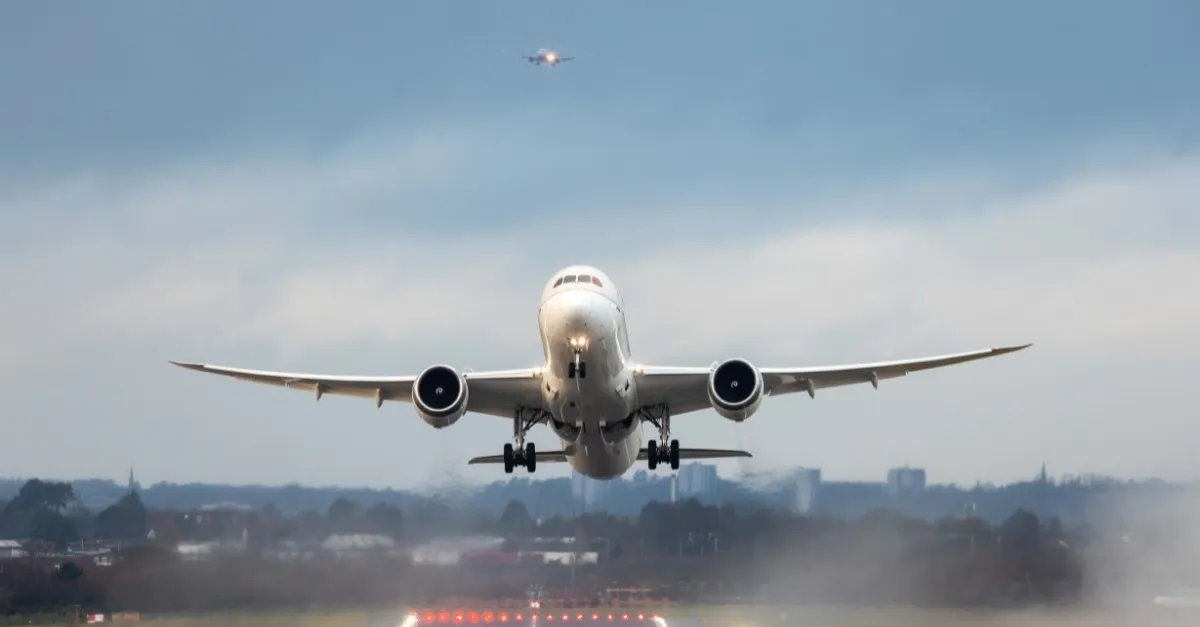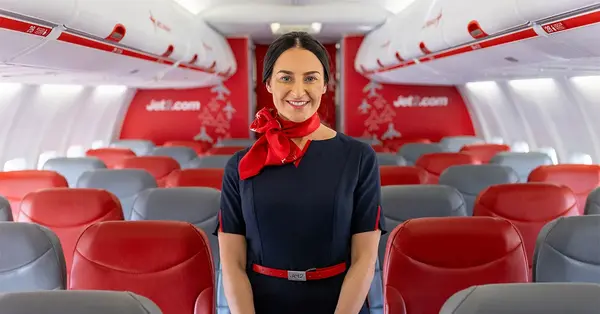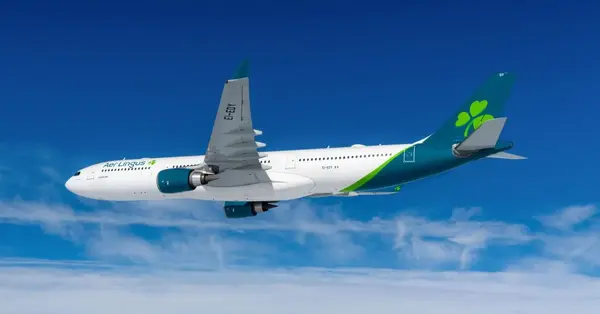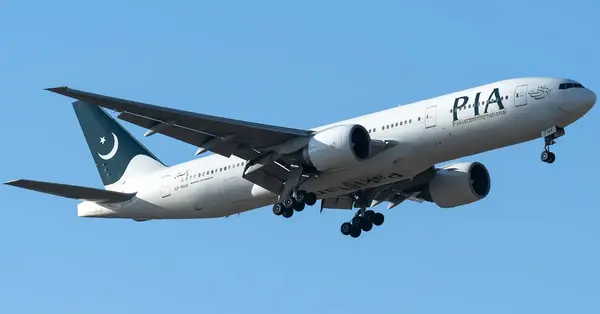You are viewing 1 of your 2 free articles
Net zero in ‘serious jeopardy’ due to airport expansion plans
The government’s delivery of net zero is being put in "serious jeopardy” due to its support for airport expansion.
The criticism came from the cross-party Environmental Audit Committee as it delivered a verdict on the government’s plans to expand several airports, including Heathrow and Gatwick.
The committee of MPs claimed that current government policies are insufficient to deliver a reduction in carbon emissions from the aviation sector in line with carbon budgets.
The Department for Transport has insisted that airport expansion plans would "only go ahead if it aligns with our legal obligations on climate change".
Ministers are expected to unveil which of two rival third runway proposals is preferred for the expansion of Heathrow within weeks.
The committee said: “Whilst it may be possible for the government to deliver airport expansion alongside its climate and environment targets, we are concerned that the proposed environmental impact from airport expansion will make such targets significantly more difficult to achieve and at much greater effort and cost.
“Furthermore, the government has not demonstrated that the economic growth from airport expansion provides enough benefit to outweigh the negative climate and environmental impacts it will lead to.”
While expanding airport capacity is likely to provide some growth to the UK economy, MPs say the level is unclear and that the government has failed to provide substantial supporting evidence.
Approving expansion already at Stansted, Luton and Gatwick suggests it is proceeding without the necessary evidence base to sufficiently underpin its economic arguments, the committee argued.
Ministers have ruled out measures to manage demand for aviation, such as limiting the number of fights available.
MPs say that the government will need to demonstrate what alternative tools it will use instead, given that the Climate Change Committee cites demand management as one way to achieve environmental targets.
The government’s current Jet Zero Strategy relies on a far higher cost to industry to abate emissions than is currently seen and requires significant carbon savings to come from technology, the committee claimed.
Potentially carbon saving technologies, such as Sustainable Aviation Fuel (SAF), have not yet been seen on a commercial scale.
The committee also raised concern that ministers are proceeding with expansion before updating the Airports National Policy Statement (ANPS), originally produced in 2018.
By doing so, MPs warned that the government is relying on “an outdated policy framework which is inconsistent with its objectives” and not allowing for proper scrutiny of expansion proposals against the new ANPS.
Committee chair Toby Perkins, Labour MP for Chesterfield, said: “The aviation industry is critically important to the UK, but it’s also one of the hardest sectors of our economy to decarbonise.
“The government has made clear it is set on expanding airport capacity; the committee has investigated how it can do that whilst meeting its own environmental targets.
“Meeting our decarbonisation targets is already a major challenge. Expanding airport capacity is likely to make that task much harder. Under the government’s existing Jet Zero Strategy, expanding airport capacity is likely to put net zero at serious risk, unless it is accompanied by a serious strategic approach to increasing the pace of decarbonising aviation.
“Having ruled out the kind of demand management measures likely to seriously reduce emissions, ministers need to make clear what alternative tools they are willing to use to ensure targets are met.
“New technological developments are promising and may in time provide an alternative route forward. But are they yet ready to be the basis for justifying this level of aviation expansion?
“At the same time, the government is proposing to expand airport capacity because it will help to grow the economy. But ministers were unable to point us to solid evidence setting out how much growth such expansion would deliver. If these plans are ever to get off the ground, it’s vital that the government provide us with some hard facts.
“This problem can’t simply be outsourced to industry; the scale of the challenge is too great and only government has access to some of the tools needed.
“It’s time for the government to step up and take responsibility for its own targets. I’m concerned that the alternative is a lose-lose scenario that leaves a dynamic net zero economy out on the runway.”
In reaction, Paul McGuinness, chair of the No 3rd Runway Coalition, said: “It’s hardly surprising that the EAC [committee] should state ’the government has so far failed to provide substantial supporting evidence’ that expanding Heathrow will add growth to the UK economy. Because no such evidence exists.”
However Duncan McCourt, chief executive of the industry’s Sustainable Aviation coalition said: "Our industry recognises decarbonisation is one of the most important and difficult challenges we face.
"We’re committed to this challenge so that we preserve the planet for the next generation, and also their ability to fly.
"Our Net Zero Roadmap sets out our plans, and we are confident that those plans can be delivered."
McCourt argued: "Our analysis shows that the UK can accommodate significant growth in passenger numbers through to 2050 – approximately 64% – whilst reducing emission levels to net zero."


















